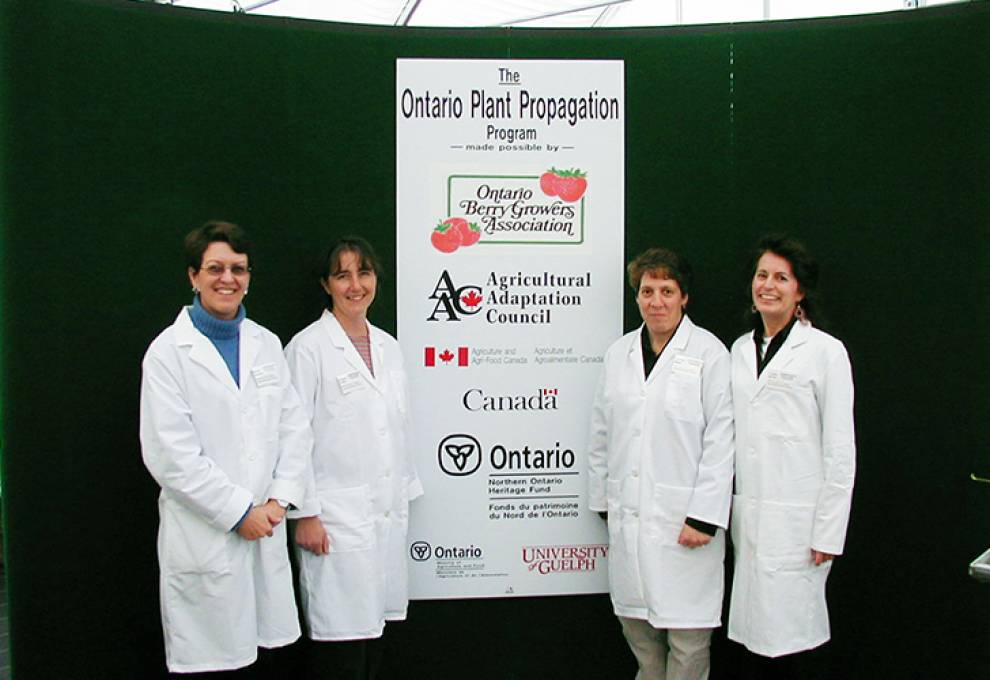
An era is coming to an end, but the mission will continue. Becky Hughes, manager of the Superior Plant Upgrading and Distribution (SPUD) Unit will be retiring November 30. She’s headed the team for 32 years, since it was originally established in 1984 to supply the first generation of seed potatoes for Ontario growers. They now contribute expertise to a wide variety of crops: potatoes, strawberries, raspberries, garlic, asparagus, sweet potatoes and haskaps.
Hughes and her staff have played an important role in virus-testing plants for propagation in Canadian horticulture. She’s observed major changes in the industry.
“The Unit originally produced only seed potatoes, however demand from the horticultural industry in Ontario led to expansion to produce clean plants or seed for a variety of crops,” Hughes says. “The industry has realized that virus-tested material is necessary to produce healthy crops.”
Without industry support, the efforts for “clean plant material” would not have happened. Currently, the United States is pushing for a National Clean Plant Initiative where all vegetatively-propagated crops would be virus-tested before being propagated. Similar efforts are underway in Canada, encouraged by the berry industry.
Here’s another example of the value of the SPUD Unit. It is considered vital to the garlic industry which requires specific pathogen testing for bulb and stem nematode.
“We have discovered that each variety of garlic reacts differently in micropropagation and bulb formation, requiring careful testing,” says Hughes.
Located in New Liskeard, Ontario for its isolated geography and early winters, the SPUD Unit provides a crucial service to many in horticulture. Strawberries, for instance, require cold temperatures for dormancy before they are wakened in January for laboratory work that can be completed in time for spring planting.
The Unit is currently under the auspices of the University of Guelph.

Add new comment